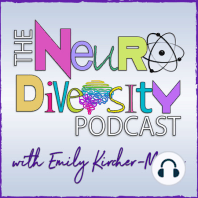42 min listen

The Rewards and Punishment Paradox with Alfie Kohn
The Rewards and Punishment Paradox with Alfie Kohn
ratings:
Length:
30 minutes
Released:
Feb 25, 2022
Format:
Podcast episode
Description
The data tells us rewarding kids for good behavior and punishing them for bad doesn’t work. In fact, it harms relationships. In the education setting and at home, Alfie Kohn says we need to rethink the way we talk to kids, and how we help them learn behavioral skills, because rewards and punishment are ineffective. Emily Kircher-Morris has a conversation with Alfie Kohn, author of Unconditional Parenting: Moving from Rewards and Punishment to Love and Reason, on episode 115. ABOUT THE GUEST - Alfie Kohn is the author of 14 books on education, parenting, and human behavior, including Punished by Rewards (1993), The Schools Our Children Deserve (1999), Unconditional Parenting (2005), and The Myth of the Spoiled Child (2014). He has appeared twice on Oprah, as well as on The Today Show and many other TV and radio programs. Kohn works with educators and parents across the country and speaks regularly at national conferences. He lives (actually) in the Boston area and (virtually) at www.alfiekohn.org. Alfie Kohn’s books https://www.alfiekohn.org/books/ Twitter https://twitter.com/alfiekohn You can support the podcast and receive subscriber-only benefits at www.patreon.com/neurodiversity. The Neurodiversity Podcast is available on Facebook and Instagram, and on Twitter @NeurodiversePod. For more information go to www.NeurodiversityPodcast.com
Released:
Feb 25, 2022
Format:
Podcast episode
Titles in the series (100)
Overcoming Perfectionism | Gifted | Intelligence | IQ | 2e: On episode six of Mind Matters, Emily talks with Lisa Van Gemert, the “Gifted Guru,” about perfectionism. We clear up some common misperceptions and discuss strategies to deal with the challenges perfectionism presents. Lisa Van Gemert has written... by Neurodiversity Podcast